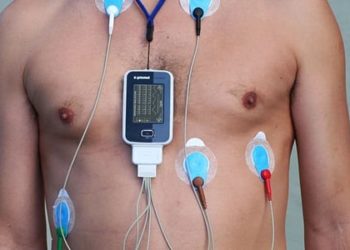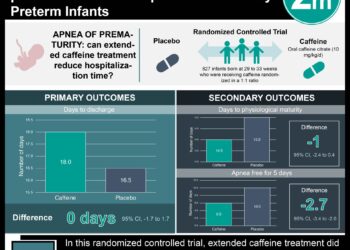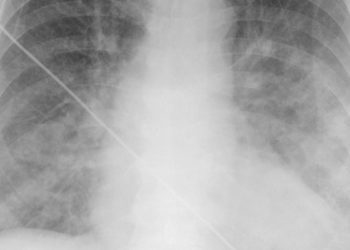Acute caffeine ingestion does not increase arrhythmias in patients with chronic systolic heart failure
1. Based on a randomized, controlled trial, acute ingestion of caffeine was not pro-arrhythmogenic in chronic systolic heart failure patients during the physical stress of a treadmill test.
2. Increased plasma levels of caffeine also did not increase the risk of arrhythmias in these patients.
Evidence Rating Level: 1 (Excellent)
Study Rundown: It is controversial whether caffeine has proarrhythmic effects. Individuals with heart failure with reduced ejection fraction are at high risk for arrhythmias, and serve as an important population to understand this risk. This randomized controlled trial aimed to compare the effect of high-dose caffeine or placebo on the frequency of supraventricular and ventricular arrhythmias, both at rest and during a symptom-limited exercise test.
Acute ingestion of caffeine did not increase the risk of ventricular or supraventricular arrhythmias as compared to placebo in patients with chronic systolic heart failure, either at rest or during a symptom-limited exercise test. Strengths of the study included the randomized, controlled design of the study. Limitations of this study included its small sample size of 51 patients. While this study looked at the important question of caffeine’s risk on arrhythmia acutely, the risk after long-term, chronic ingestion is likely of greater clinical relevance.
Click to read the study, published today JAMA Internal Medicine
Relevant Reading: Randomized control trial investigating the influence of coffee on heart rate variability in patients with ST-segment elevation myocardial infarction
In-Depth [randomized controlled trial]: This double-blind, randomized controlled trial took place in at one tertiary-care university hospital in Brazil between March 2013 and October 2015. It utilized a crossover design. Patients included in the cohort had chronic heart failure with ejection fraction <45% and New York Heart Association functional classes I to III. Initially only patients with ICDs were included for safety purposes, but after finding no clinically significant events, the trial included patients without ICDs. Exclusion criteria was inability to ingest pills, major physical limitation to perform a treadmill stress test, use of anti-arrhythmic drugs except for beta-blockers and amiodarone, and recent hospitalization for heart failure <2 months to randomization. Following a 7-day washout, patients were randomized to either receive 500 mg of caffeine or lactose dissolved in decaffeinated coffee. Heart rate, ECG monitoring, and blood work occurred at baseline. After the initial phase, another 7-day wash out occurred and patient groups were switched. The primary outcome of interest was number and percentage of ventricular and supraventricular premature beats assessed by continuous electrocardiographic monitoring. This study used intention-to-treat statistical analysis.
Fifty-one patients were enrolled for randomization with a mean age of 60. These patients’ average left ventricular ejection fraction was 29%. There was no significant difference found between the caffeine and placebo groups with respect to ventricular (185 vs. 239 beats respectively; p = 0.47) or supraventricular premature beats (6 vs. 6 beats respectively; p = 0.44). During exercise, the same pattern remained, and exercise-related variables were also not influenced by acute caffeine ingestion. Finally, there was no increase in premature ventricular beats in patients with higher levels of plasma caffeine compared to lower levels (p = 0.91), or with placebo (p = 0.74).
Image: CC/Wiki
©2016 2 Minute Medicine, Inc. All rights reserved. No works may be reproduced without expressed written consent from 2 Minute Medicine, Inc. Inquire about licensing here. No article should be construed as medical advice and is not intended as such by the authors or by 2 Minute Medicine, Inc.







